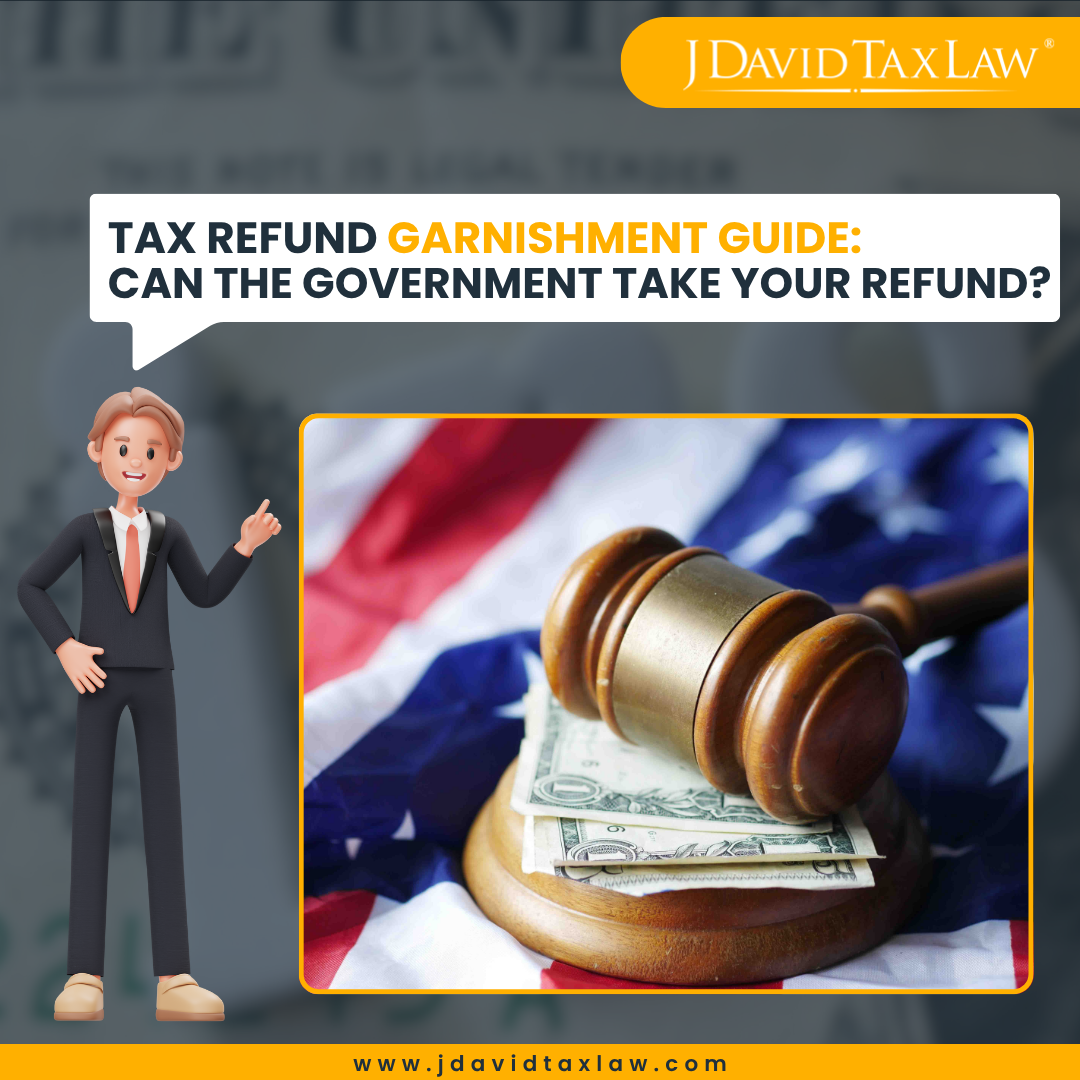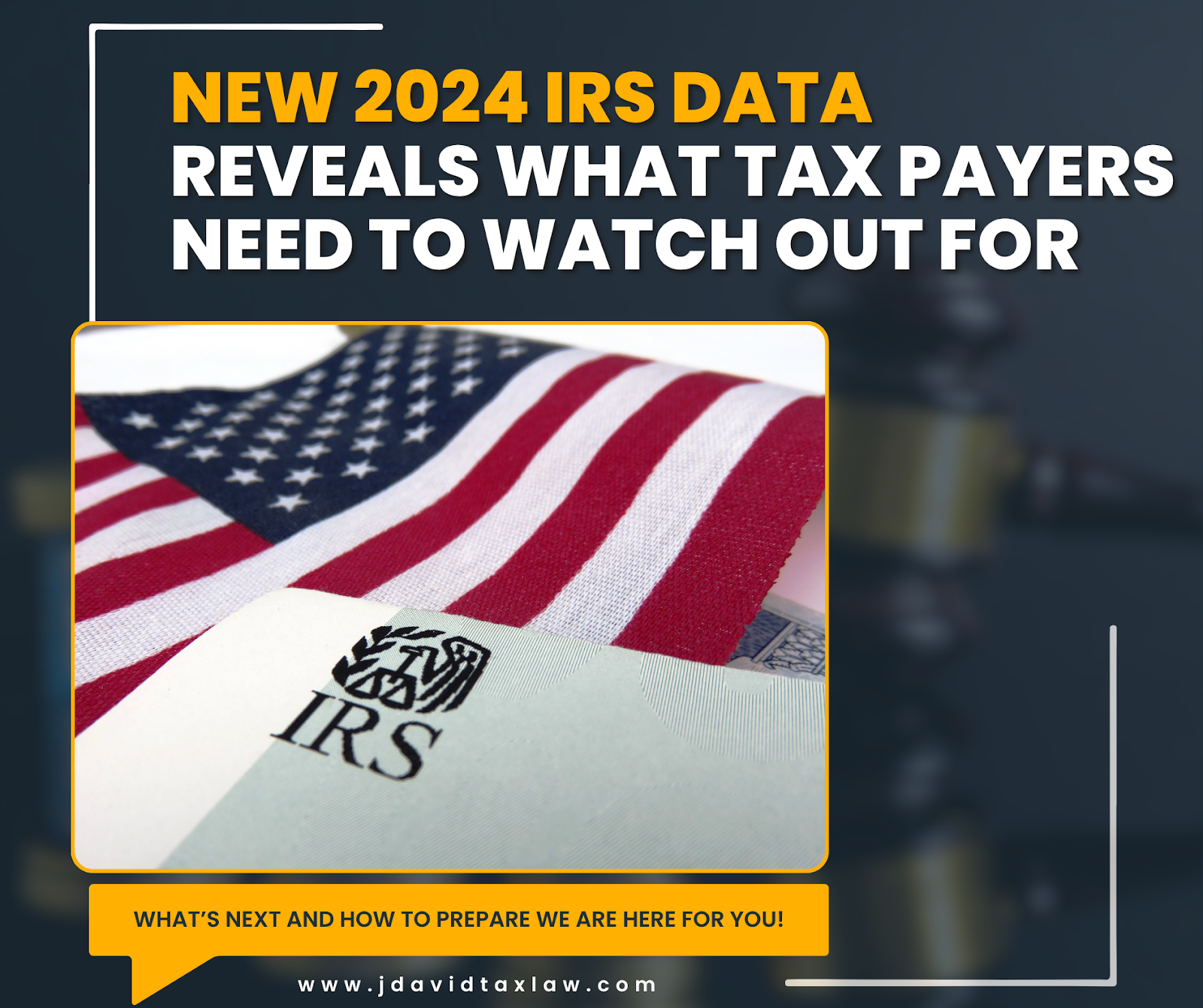
Tax refund garnishment allows state and federal agencies to take your refund for unpaid debt. With the right steps, it’s preventable. Call (888) 342-9436.





Tax monitoring and assessments are integral parts of strategic business operations. Knowledge of tax implications can influence business decisions. This includes the structure of the business, the timing of major purchases, and even expansion plans.
For small business owners, this can further support their growth and long-term sustainability by maximizing after-tax income.
Read on as J. David Tax Law discusses the unique tax challenges faced by small business owners in Orlando, FL. We will also provide actionable insights into managing these responsibilities effectively.
The structure of your business heavily influences your tax obligations.
For instance, income from pass-through entities like S-corporations and partnerships is taxed at personal tax rates. C-corporations, on the other hand, face corporate tax rates.
Florida’s base sales tax applies to tangible goods and some services – with potential local surtaxes varying by jurisdiction. Businesses also need to manage local taxes such as taxes on both real estate and personal property and occupational taxes.
However, keep in mind that these can still vary depending on business type and revenue. Here’s how Tax requirements differ significantly among business structures.
Sole Proprietorship: Experiences the simplest form of taxation with profits and losses reported on the owner’s personal tax returns. Sole proprietors must also pay self-employment taxes.
Partnership and S Corporations: Similar to sole proprietorships, partnerships pass profits and losses through to partners. Partners then report them on their personal tax returns.
Limited Liability Company (LLC): LLCs offer flexible tax options. They can choose to be taxed either as pass-through entities or as corporations.
C Corporation: C Corporations are taxed independently from their owners at the corporate tax rate. The dividends paid to shareholders are taxed again at the individual level, leading to double taxation.
Small business owners often face several common tax-related financial burdens. The majority of these can significantly impact their operational efficiency and financial health. Thus, effective management of these tax issues is crucial for maintaining compliance and ensuring business sustainability.
Tax obligations often represent significant financial outlays that occur at specific times during the fiscal year. Thus, requiring careful monitoring and budgeting to ensure that funds are available when needed.
One of the primary challenges is the timing of tax payments, which may not always align with a business’s revenue cycles.
For example, sales tax and payroll taxes often require monthly or quarterly payments. Income taxes, on the other hand, might be due annually or quarterly. If these payments coincide with periods of low revenue, it can strain the business’s finances leading to cash shortages.
Sales tax compliance represents a significant challenge for small business owners. This is in particular for Orlando where tax rates and regulations differ across jurisdictions.
In addition, managing sales tax is further compounded by the diverse range of products and services a business might offer. Each is potentially subject to different tax rules. This requires careful budgeting and financial planning to avoid shortages that could lead to penalties or fines.
The payroll tax regulations process involves the precise calculation, withholding, and timely remittance of taxes from employee wages. This covers federal income tax, social security taxes, and Medicare taxes, in addition to any relevant state and local business taxes that may apply.
The challenge lies not only in the accurate calculation of each tax but also in understanding the various thresholds and rates. In particular, those that apply based on the employee’s earnings and the specific requirements of different tax jurisdictions.
Moreover, small businesses must keep abreast of changes in tax laws that can affect how payroll taxes are calculated and reported. For instance, tax rates and wage thresholds for Social Security and Medicare taxes can change annually. Failure to comply with these updates can result in non-compliance and expose the business to financial risks.
For small business owners, the word “audit” often carries a weight of anxiety and concern. Given their limited resources, smaller enterprises face unique challenges that can increase their likelihood of undergoing tax audits.
Small businesses that handle large amounts of cash, such as restaurants, retail stores, and service-based businesses, are often on the IRS radar. Large cash transactions can sometimes suggest under-reported income or improper accounting, making these businesses more susceptible to audits.
Effective record-keeping is fundamental for small business owners to ensure tax compliance and to streamline financial management. Doing this not only simplifies the process of filing taxes but also safeguards the business in the event of an audit.
Here are the essential record-keeping practices that every business owner should adopt:
Keep detailed and up-to-date records of all financial statements including income statements, balance sheets, and cash flow statements.
Preserve all receipts and invoices related to business expenses to substantiate deductions claimed on tax returns
Collect and review bank and credit card statements to ensure all transactions are accounted for.
Maintain accurate payroll information for all employees such as wages, tax withholdings, and employment tax payments.
Document the purchase details of all business assets to calculate depreciation for tax purposes and to track the value of assets over time.
Keep copies of filed tax returns and associated calculations for at least seven years to comply with IRS guidelines.
Effective tax compliance is vital for small business owners. It not only safeguards them against legal ramifications and costly penalties but also enhances their credibility with stakeholders.
By adhering to tax laws, businesses can ensure a clearer financial overview, facilitating better decision-making and strategic planning. In return, this solidifies a business’s reputation and positions it for sustainable growth and success in a competitive marketplace.
If you find yourself facing the burden of tax debts, J. David Tax Law attorneys are always ready to assist. Our tax resolution services can provide the support you need to navigate through tough tax situations and protect your business. Explore how we can help you resolve your tax concerns and secure your business’s future. Book your free consultation today at (888) 342-9436.
Our tax relief attorneys specialize in tax problems and tax debt resolutions
Get started with a 100% free consultation

Tax refund garnishment allows state and federal agencies to take your refund for unpaid debt. With the right steps, it’s preventable. Call (888) 342-9436.

Read the latest news about the 2024 IRS data and key insights from J. David Tax Law. Call (888) 342-9436.today for a free consultation.

Facing an IRS collection notice? Learn what it means, how to protect your assets, and how we can stop wage garnishments and levies. Call (888) 342-9436
Get IRS Tax Assistance Within 24 Hours